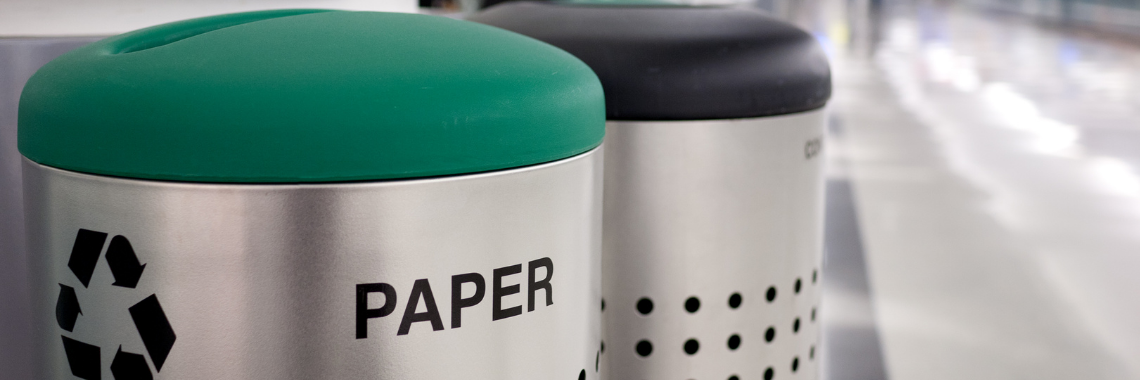
Zero Waste Initiatives at Airports
By Muhammad Humam 11th February, 2021
With COVID-19’s seeming monopoly over the attention of the aviation industry, it can become easy to forget about the pre-COVID sustainability imperatives that many in this industry had vowed to implement. However, despite declining passenger numbers (and its inherent consequences for airports and airlines), many airports have continued to maintain their sustainability commitments. Four such airports, as highlighted by Passenger Terminal World and Aviation Benefits, are the London Gatwick, Salvador, Brussels and Istanbul airports.
Istanbul Airport is the first in Turkey to be awarded a certification of zero waste, as reported by Passenger Terminal World. The waste management system at the airport has been designed specifically to help with its zero waste commitment and this commitment is also shared by airport operators. The waste produced at Istanbul Airport is nearly 100 tons and about one-third of this is recycled. Ülkü Özeren advises the CEO of the airport and has a very interesting take on this project: “We understand that state-of-the-art infrastructure supported by technology is important, but it must be supported by awareness projects and tools if we want to achieve stakeholder engagement and effective waste management results.” Hence, it is clear that having the correct technological infrastructure and the collaboration of stakeholders on key sustainability targets is imperative for airports towards the achievement of their sustainability goals.
As reported by ICAO, London Gatwick gained the Carbon Trust’s Zero Waste to Landfill certification in 2008. About £4M were spent by the airport towards the achievement of this goal and it saves nearly £750,000 per year due to this. The San Diego International Airport, as mentioned by the United States Environmental Protection Agency, has also been committed to becoming zero waste and was able to achieve this objective in January 2020. Perhaps most notably, this airport encourages all 4,500 of its employees to use reusable items by providing them with reusable utensils on a regular basis.
As reported by Aviation: Benefits Beyond Borders, Brussels Airport introduced electric buses for the transport of passengers to and from their designated airplanes, helping the airport achieve carbon neutrality in 2018. As per the CEO of the airport, Arnaud Feist, this initiative will reduce the carbon footprint of the airport by around two-fifths (relative to 2010 levels) by 2030.
As airports around the world are looking at different ways to reduce their environmental footprint and go for CO2 neutrality, EMMA, like no other, understands how to make airports benefit from sustainability initiatives as its A-CDM solution helps reduce the CO2 footprint of movements around the airport considerably. EMMA fully understands the challenges faced by airports towards being able to completely integrate a waste management solution into their existing infrastructure. It also covers the two key points of focus through which zero waste management can be easily achieved: collaboration and technology. EMMA is a cutting-edge software that helps key stakeholders collaborate with each other by allowing them to share information in a timely manner. Not just that, the software also allows airport stakeholders to measure their performance in relation to specific goals. Hence, being a technological solution which facilitates collaboration, EMMA is a great platform for airports looking to achieve their sustainability targets.